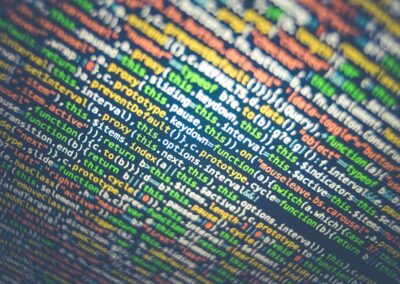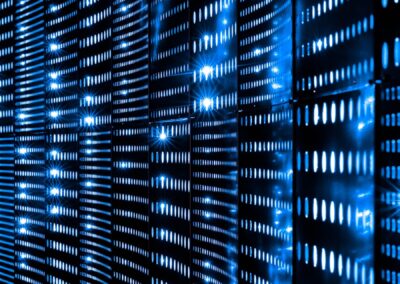Understanding the Risks of Cyber Attacks on Energy and Utility Systems
The Growing Threat Landscape
In today’s interconnected world, energy and utility systems are increasingly becoming targets for cyber attacks. The critical infrastructure of nations, particularly in regions like Saudi Arabia, UAE, Riyadh, and Dubai, relies heavily on these systems for maintaining societal functions and economic stability. The complexity and scale of these systems make them attractive targets for cybercriminals and nation-state actors seeking to disrupt operations, steal sensitive information, or cause widespread chaos.
The potential consequences of cyber attacks on energy and utility systems are severe. These attacks can lead to power outages, disruptions in water supply, and even damage to physical infrastructure. The ripple effects can impact other sectors, including healthcare, finance, and transportation, highlighting the interconnected nature of modern society. Given the strategic importance of the energy sector, protecting these systems from cyber threats has become a top priority for governments and organizations alike.
Moreover, the advent of new technologies such as Artificial Intelligence (AI), Blockchain, and the Metaverse introduces both opportunities and challenges in securing energy and utility systems. While these technologies can enhance security measures, they also present new vulnerabilities that attackers can exploit. As such, a comprehensive understanding of the threat landscape and the implementation of robust cybersecurity measures are essential to mitigate the risks associated with cyber attacks on these critical systems.
Identifying Potential Risks and Consequences
Cyber attacks on energy and utility systems can take various forms, each with its own set of risks and consequences. One common type of attack is ransomware, where attackers encrypt critical data and demand a ransom for its release. Such attacks can paralyze operations, leading to significant financial losses and potentially endangering public safety. In 2021, for example, a ransomware attack on a major US pipeline operator disrupted fuel supplies across the East Coast, underscoring the far-reaching impacts of such incidents.
Another significant risk is the potential for attackers to gain control of Industrial Control Systems (ICS) and Supervisory Control and Data Acquisition (SCADA) systems. These systems manage and monitor critical infrastructure operations, and unauthorized access can allow attackers to manipulate processes, cause equipment malfunctions, or even trigger catastrophic failures. In regions like Saudi Arabia and the UAE, where energy infrastructure plays a crucial role in the economy, such disruptions can have severe economic and societal consequences.
Furthermore, data breaches represent a significant risk, as energy and utility systems store vast amounts of sensitive information. Cyber attackers can steal proprietary data, customer information, and intellectual property, leading to financial losses, reputational damage, and regulatory penalties. The integration of AI and IoT devices in energy systems also introduces new attack vectors, as these technologies often lack robust security measures, making them vulnerable to exploitation.
The Impact on Business Success and Leadership
The potential risks and consequences of cyber attacks on energy and utility systems extend beyond immediate operational disruptions. They also have a profound impact on business success and leadership. For business executives and mid-level managers, particularly those in Saudi Arabia, UAE, Riyadh, and Dubai, understanding these risks is critical to ensuring the resilience and sustainability of their organizations.
Cyber attacks can erode customer trust and investor confidence, leading to long-term reputational damage. In the competitive business environments of these regions, maintaining a strong cybersecurity posture is essential for attracting and retaining customers, partners, and investors. Leadership must prioritize cybersecurity initiatives and allocate resources to implement advanced security measures that can detect, prevent, and respond to cyber threats effectively.
Moreover, executives and managers must stay informed about the latest developments in cybersecurity and emerging threats. This knowledge enables them to make strategic decisions that enhance their organization’s security posture. Executive coaching services can play a vital role in equipping leaders with the skills and knowledge needed to navigate the complex cybersecurity landscape. By fostering a culture of cybersecurity awareness and resilience, organizations can better protect their critical infrastructure and ensure long-term business success.
Mitigating the Risks of Cyber Attacks on Energy and Utility Systems
Implementing Robust Cybersecurity Measures
To mitigate the risks associated with cyber attacks on energy and utility systems, organizations must implement robust cybersecurity measures. This includes adopting a multi-layered security approach that integrates advanced technologies such as AI and Blockchain. AI can enhance threat detection and response capabilities by analyzing vast amounts of data to identify anomalies and potential threats. Blockchain technology can secure data transactions and ensure the integrity of critical information.
One effective strategy is to implement Endpoint Detection and Response (EDR) solutions, which provide real-time monitoring and analysis of endpoint activities. EDR solutions can detect and respond to threats at the earliest stages, preventing them from escalating into major incidents. Additionally, organizations should employ intrusion detection systems (IDS) and intrusion prevention systems (IPS) to monitor network traffic and block malicious activities.
Regularly conducting vulnerability assessments and penetration testing is also essential. These practices help identify and address security weaknesses before attackers can exploit them. Organizations should establish incident response plans that outline procedures for detecting, containing, and recovering from cyber attacks. These plans should be regularly updated and tested through simulated cyber attack exercises to ensure their effectiveness.
Enhancing Collaboration and Information Sharing
Collaboration and information sharing are critical components of an effective cybersecurity strategy. Organizations in the energy and utility sectors should actively participate in industry-specific threat intelligence sharing initiatives. These initiatives facilitate the exchange of information about emerging threats, attack methodologies, and best practices for mitigating risks. By sharing threat intelligence, organizations can stay ahead of cyber adversaries and collectively enhance their security posture.
In regions like Saudi Arabia, UAE, Riyadh, and Dubai, government agencies, industry associations, and private sector entities can collaborate to develop comprehensive cybersecurity frameworks. These frameworks should include standards and guidelines for securing energy and utility systems, as well as mechanisms for reporting and responding to cyber incidents. Public-private partnerships can also play a crucial role in building a resilient cybersecurity ecosystem.
Moreover, organizations should invest in cybersecurity training and awareness programs for their employees. Human error remains one of the leading causes of cyber incidents, and educating employees about cybersecurity best practices can significantly reduce the risk of successful attacks. Training programs should cover topics such as phishing awareness, safe internet practices, and the importance of reporting suspicious activities.
Leveraging Executive Coaching for Cybersecurity Leadership
Executive coaching services can be instrumental in developing cybersecurity leadership within organizations. By providing leaders with the knowledge and skills needed to navigate the complex cybersecurity landscape, executive coaching can enhance their ability to make informed decisions and prioritize security initiatives. In regions like Saudi Arabia, UAE, Riyadh, and Dubai, where executive leadership drives strategic decision-making, incorporating cybersecurity insights into executive coaching can enhance organizational resilience.
Through executive coaching, leaders can gain a deeper understanding of the latest cybersecurity trends, emerging threats, and best practices for risk mitigation. Coaching can also help leaders develop a proactive approach to cybersecurity, emphasizing the importance of continuous monitoring, threat detection, and incident response. By fostering a culture of cybersecurity awareness and resilience, organizations can better protect their critical infrastructure and ensure long-term business success.
Conclusion: Building a Resilient Cybersecurity Posture
In conclusion, the potential risks and consequences of cyber attacks on energy and utility systems are significant and far-reaching. For business executives, mid-level managers, and entrepreneurs in Saudi Arabia, UAE, Riyadh, and Dubai, understanding these risks and implementing robust cybersecurity measures is essential for protecting critical infrastructure and ensuring business success.
By adopting advanced technologies, enhancing collaboration, and investing in executive coaching, organizations can build a resilient cybersecurity posture that safeguards their operations and supports long-term growth. As the digital landscape continues to evolve, a proactive and comprehensive approach to cybersecurity will be crucial for mitigating the risks of cyber attacks and maintaining the stability and security of energy and utility systems.
#CyberSecurity #EDRsolutions #EnergySystems #UtilitySystems #SaudiArabia #UAE #Riyadh #Dubai #BusinessSuccess #LeadershipSkills #ProjectManagement























